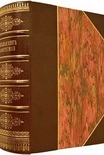Second Place by Rachel Cusk (best free e reader TXT) 📗

- Author: Rachel Cusk
Book online «Second Place by Rachel Cusk (best free e reader TXT) 📗». Author Rachel Cusk
Justine told me that L was making a new painting every night, and that the same routine – the build-up of agitation over the course of a few hours, followed by him bursting out of the house with his bag of paints and plunging away into the dark – repeated itself each time. In other words, the paintings were produced almost as acts of performance, requiring this winding or working up of himself in advance, just as actors or other performers do. More than anything this should have told me that we were approaching an ending, since this extreme kind of behaviour was entirely unsustainable, but at the time all I felt was resentment at the labour and worry it was causing Justine. I did dimly perceive that L was travelling far outside himself in his nightly encounters, and that he must therefore have found something there that he went in pursuit of over and over again, but this only caused me to feel a vague suspicious kind of jealousy, the kind a wife feels when she suspects her husband of having an affair but won’t yet admit it to herself. All I knew was that L had gone away from me, was not even considering me, while he exercised his entitlement to live in my environs, as if I didn’t exist.
Then I met him unexpectedly one afternoon, when I was out trudging aimlessly along the marsh paths – he was sitting on one of the small bluffs that overlook the creeks. The marsh was quite dry by now from the heat, and its faded, fawn colours had an air of nostalgia to them, so that you seemed to be looking at it across a distance of time as well as space. There was the smell of sea lavender on the breezes that for me is the smell of summers, and even that scent seemed to hold a melancholy note, as though everything that had been and could ever be joyous and good lay irretrievably in the past. I think I would have walked past L, so exiled from him did I feel, had he not turned his head as I approached and – after a few seconds in which I am certain he did not recognise me – looked at me quite kindly.
‘I’m glad you’ve come,’ he said when I sat down next to him. ‘We haven’t always gotten along too well, have we?’
He spoke rather vaguely and distractedly, and though I was surprised by his remarks, I wondered at the same time whether he was quite conscious of what he was saying, and to whom.
‘I don’t know how to live my life any other way,’ I said.
‘It doesn’t matter now,’ he said, patting my hand in an avuncular kind of fashion. ‘All that has gone. So many of our feelings are illusion,’ he said.
How true, Jeffers, that observation felt to me!
‘I have made a discovery,’ he said.
‘Will you tell me what it is?’
He turned his empty eyes on me, and the sight of those dead circles made an awful pain go through me. I didn’t need to hear what his discovery was – I could see it right there!
‘It’s so lovely here,’ he said after a while. ‘I like watching the birds. They make me laugh, they enjoy being themselves so. We’re awfully cruel to our bodies, you know. Then they refuse to live for us.’
I don’t believe he was talking about death, but about the non-being in life that most of us go in for.
‘You’ve always pleased yourself,’ I said, somewhat bitterly, because it did seem to me that that was what he had done, and what most men did.
‘But it turns out,’ he said after a while, as though I hadn’t spoken, ‘that nothing is real after all.’
I think I understood then that his illness had released him from his own identity and history and memory so violently and thoroughly that he had been able at last to really see. And what he had seen was not death, but unreality. This, I believe, was the discovery he had made, and it was what the night paintings told of – and the question I wish I had asked him that afternoon on the marsh was about what came after that discovery, but perhaps L didn’t know the answer to that question any more than the rest of us do. Instead we sat there and watched the birds floating and hovering on the breezes, and after half an hour or more of sitting in silence I got up while he stayed where he was, and seemed inclined to remain. He looked up at me, though, and he gripped my hand suddenly with his own strong, dry, bony hand and he said, in the same vague impersonal way:
‘I know you’re going to feel better soon.’
And we said goodbye to one another, and I never saw L again.
Tony had brought in a big crop of fruit and vegetables from the garden, and for two days after that I was imprisoned inside in the kitchen from dawn to dusk, sweating in clouds of heat and blanching and canning and preserving, which was what I was doing the morning Justine burst in and told me that L had gone.
‘How could he have gone?’ I said.
‘I don’t know!’ she cried, and she handed me a





Comments (0)